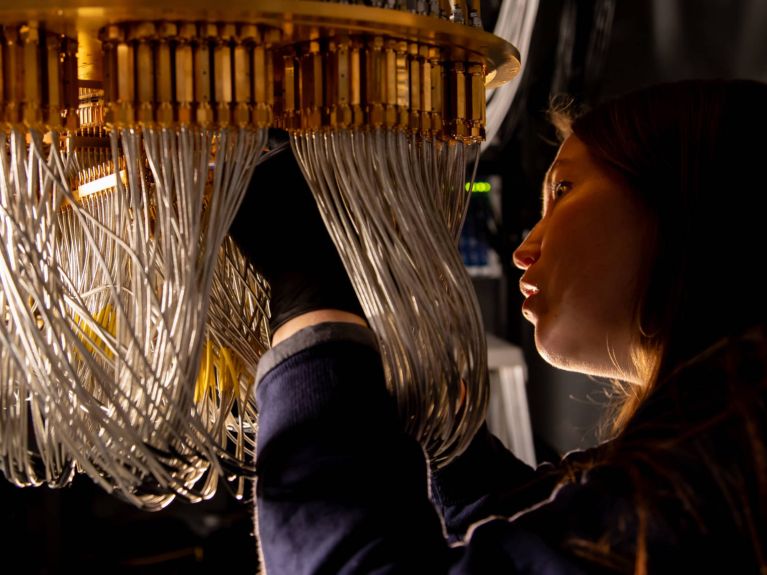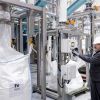Computers of the future
Quantum computers can do things that would take conventional computers billions of years. How does that work?

Dear computer, please guide me through the city without any traffic congestion! Megacity residents would love a digital assistant that could do this. But it’s a challenging task that would be tough to solve even for a supercomputer. Quantum computers are indeed capable of performing such feats, however.
What is a quantum computer?
Quantum computers utilise the principles of quantum mechanics to process information. Unlike conventional computers, they don’t work with bits but with quantum bits – or qubits for short. While bits can only assume the value zero or one at a time, the laws of quantum physics mean that qubits can assume the state zero, one or both at the same time.
What are quantum computers better at?
For a lot of complex tasks in areas like medicine, materials science, climate research and logistics, numerous calculation steps have to be carried out in parallel. Conventional computers require a large number of individual computing cores, which then work simultaneously on a given task. Quantum computers only require a single chip, as the qubits it contains can be in several states at the same time. What is more, quantum computers are not only faster, they also use less energy.
Are quantum computers already being used in our day-to-day lives?
No, there are still a lot of challenges involved in putting these machines to work in practice: quantum computers are still very complex and fragile. Qubits react to the smallest external influences, so they have to be shielded from vibrations and from magnetic and electric fields. As such, the systems are still very error-prone.
Which quantum computer is the most powerful?
The most powerful quantum chip right now is Google’s Willow – German computer scientist Hartmut Neven was a key figure in developing this. The development team established an innovative approach to error correction: by doubling the number of qubits it was possible to halve the error rate. Willow was able to solve a complex quantum statistics problem in five minutes for which Frontier – currently the most powerful supercomputer – would have taken billions of years.
Will conventional computers be replaced entirely by quantum computers at some stage?
Not in the foreseeable future. It is more likely that hybrid systems will combine conventional computers with quantum computers: the quantum computer then carries out the calculation, while the conventional computer takes care of everything else.


